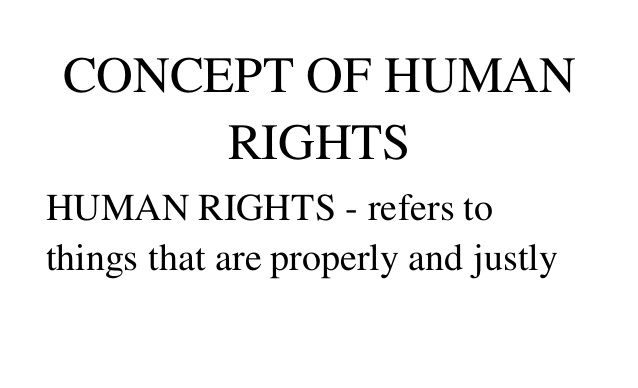Political Science Notes On – Concept Of Human Rights – For W.B.C.S. Examination.
W.B.C.S. Exam which is one of the toughest exam and is conducted in three stages- Prelims, mains, and interview. Optional subjects are considered as the significant part of W.B.C.S. Mains exam. The Political science optional subject is a General studies friendly subject. It is a decent optional subject with around 50-60% syllabus coordinating with the General Studies Paper. It is a very dynamic and constantly evolving subject. Candidates seeking to choose political science, ought to be more aware of the paradigm shift in core area than in the changes in the revised syllabus. In fact, the revision of Political science has paved a way for scoring more marks in this particular optional. The Paper I of political science paper I deals with the Political Theory and Indian Politics. The Paper II deals with Comparative Political Analysis and International Politics.Continue Reading Political Science Notes On – Concept Of Human Rights – For W.B.C.S. Examination.
Human rights are rights inherent to all human beings, regardless of race, sex, nationality, ethnicity, language, religion, or any other status. Human rights include the right to life and liberty, freedom from slavery and torture, freedom of opinion and expression, the right to work and education, and many more. Everyone is entitled to these rights, without discrimination.
International Human Rights Law
International human rights law lays down the obligations of Governments to act in certain ways or to refrain from certain acts, in order to promote and protect human rights and fundamental freedoms of individuals or groups.To view Political Science Optional Syllabus , Click Here.
One of the great achievements of the United Nations is the creation of a comprehensive body of human rights law—a universal and internationally protected code to which all nations can subscribe and all people aspire. The United Nations has defined a broad range of internationally accepted rights, including civil, cultural, economic, political and social rights. It has also established mechanisms to promote and protect these rights and to assist states in carrying out their responsibilities.
The foundations of this body of law are the Charter of the United Nations and the Universal Declaration of Human Rights, adopted by the General Assembly in 1945 and 1948, respectively. Since then, the United Nations has gradually expanded human rights law to encompass specific standards for women, children, persons with disabilities, minorities and other vulnerable groups, who now possess rights that protect them from discrimination that had long been common in many societies.
Human rights are at the core of international law and international relations. They represent basic values common to all cultures, and must be respected by countries worldwide. Human rights are inalienable fundamental rights to which a person is inherently entitled simply because he or she is a human being. The principle of equality and non-discrimination, as stipulated in Article 2 of the Declaration, is the cornerstone of the human rights protection system, enshrined in every human rights instrument, stipulating that;
“Everyone is entitled to all the rights and freedoms set forth in this Declaration, without distinction of any kind, such as race, colour, sex, language, religion, political or other opinion, national or social origin, property, birth or other status. Furthermore, no distinction shall be made on the basis of the political, jurisdictional or international status of the country or territory to which a person belongs, whether it be independent, trust, non-self-governing or under any other limitation of sovereignty.“
In this section the concept of human rights from its origins to the broad interpretation given to it today will be discussed. First, the concept of human rights is introduced as well as general elements of international law, including the application of principles of human rights law. The emphasis is further laid on three major dimensions: standards (the human rights norms as defined in internationally agreed texts); supervision (the mechanisms to monitor compliance with human rights standards); and the ways in which respect for human rights is put into practice.
Please subscribe here to get all future updates on this post/page/category/website


 +919674493673
+919674493673  mailus@wbcsmadeeasy.in
mailus@wbcsmadeeasy.in







































































































